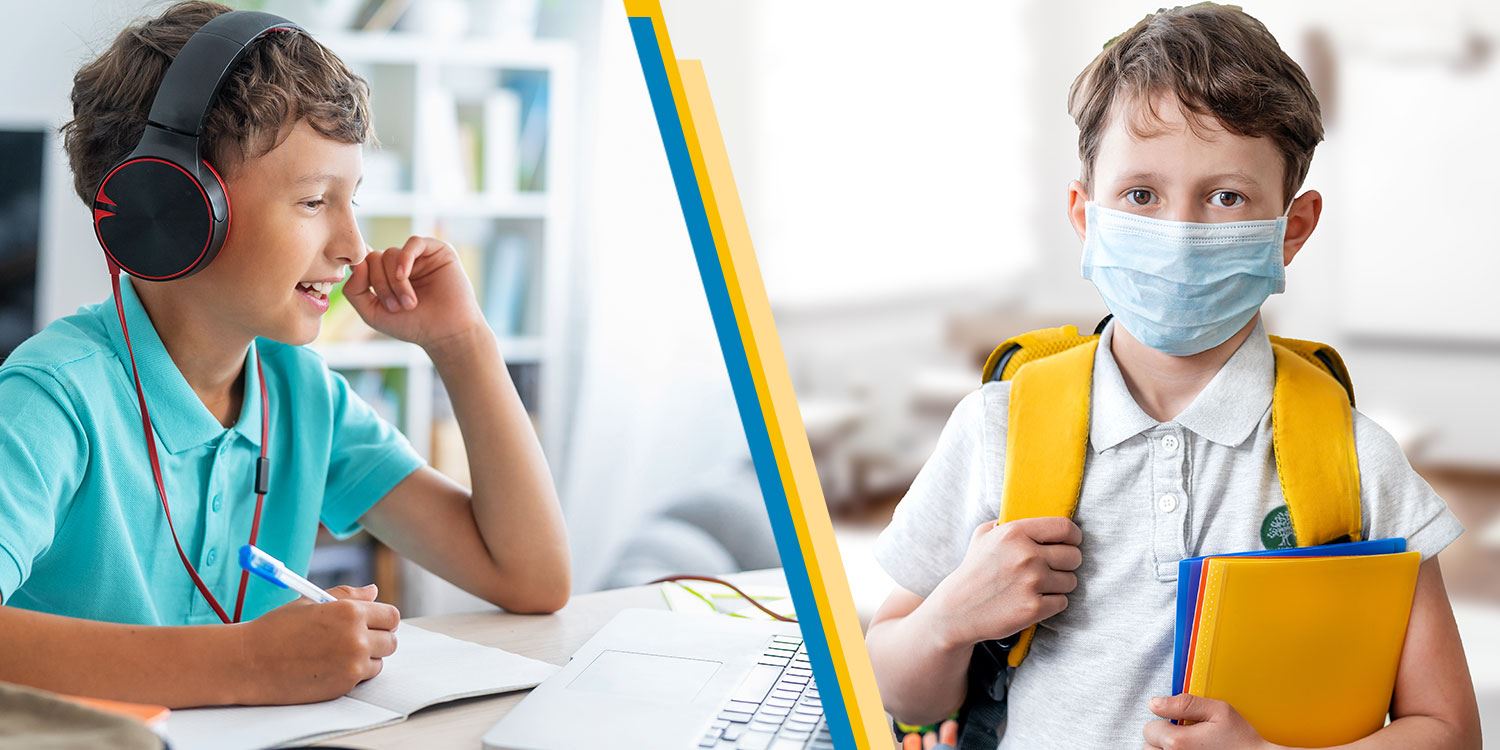
Following the chaos caused by the COVID-19 pandemic during the 2019-20 academic year, it comes as no surprise that governments and authorities around the world have taken different approaches regarding schooling this year. While some have mandated that schools remain closed, others have allowed them to open, either partially or fully, in an effort to get kids back in school.
However, opening schools, albeit it in the best interest of children, comes with a specific set of operating challenges such as the number of children allowed in each classroom, regular temperature checks, enhanced sanitization, face masks, and limiting family access to the school building. Additionally, there are the academic challenges that come with ensuring a smooth and continuous flow to the learning. Especially in situations where schools have had to move between instructional models – online and in-person – within the same term!
This was the case for the Collegiate Charter School of Lowell (Collegiate), a SABIS® public charter school in Massachusetts, U.S. Collegiate began the school year in an online instructional model and in September transitioned to a hybrid model based on parents’ request, with 55% of its students learning online and 45% of its students on campus. By the middle of October, the school closed its doors sending all kids back home to study online due to declining COVID-19 metrics in the city of Lowell, MA.
In Kurdistan, northern Iraq, the International Schools of Choueifat in Erbil, Dream City, and Sulaimani, also members of the global SABIS® Network, were faced with a similar situation. On September 1st, and in line with Ministry of Education instructions, the schools began the academic year in a remote setting, offering students online learning. Several weeks later, the ministry briefly allowed schools in Kurdistan to open again within strict health and safety guidelines, before closing them down once again.
Other regions, such as the U.A.E., had a complex operational structure with each of the 7 emirates adopting different health and safety restrictions and school opening guidelines. Further disruption ensued due by a number of COVID-19 cases reported at some of the schools, making a difficult situation even more challenging. As a result, several SABIS® network schools in the U.A.E. have had to switch between four different learning models up to five times during the first term. School administrations were prepared and took immediate action at every turn to ensure that the learning continues seamlessly regardless of the model or the challenge.
But regardless of the geographic location, reasons, and the timing, what is constant is the ability of these schools to adapt to the fluid situations and transition smoothly between instructional models.
“The ability for students to leave school with their Chromebook, open it the following day at home, and continue learning online with their teachers without missing a beat is invaluable in our new normal. And we could not have achieved this at Collegiate were it not for our dedicated teachers and staff who received constant professional development and the SABIS® E-learning solution that we benefit from as a member of the global SABIS® Network. We were of very few public schools in the area who succeeded in transitioning smoothly from one model to another and our students have benefitted from an uninterrupted education as a result,” commented Dr. Laurie Hodgdon, School Director, Collegiate Charter School of Lowell – Lowell, Massachusetts.
This sentiment is echoed by school directors faced with constant disruptions to the academic year so far. Piero Botha, Director at ISC-Sulaimani commented: “The SABIS® system, our E-books, Interactive Whiteboards, and all other online resources made it so much easier to switch between instructional models. SABIS® students in Kurdistan have a huge advantage over other students in the public system, who have had virtually no teaching since the start of the 2020-21 academic year.”
If you would like to find out more about online learning at SABIS®, click here.